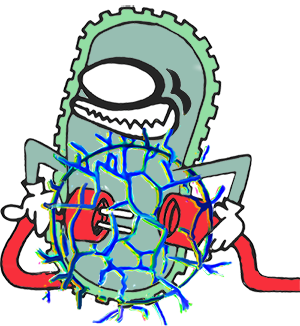Team:TU Delft-Leiden/Project/Life science/curli/cloning/GoldenGate
From 2014.igem.org
Curli Module - Cloning - Golden Gate Assembly
3 pieces of DNA had to be cloned into pSB1C3 to construct our BioBricks BBa_K1316013 and BBa_K1316014 . Both BioBricks encode a rhamnose promoter and the coding sequences of csgB and csgA or csgA-HIS. To work efficiently, we used the Golden Gate Assembly to construct our BioBricks. In this way, we were able to restrict and ligate all the DNA fragments at once (see figure 1).

 "
"






